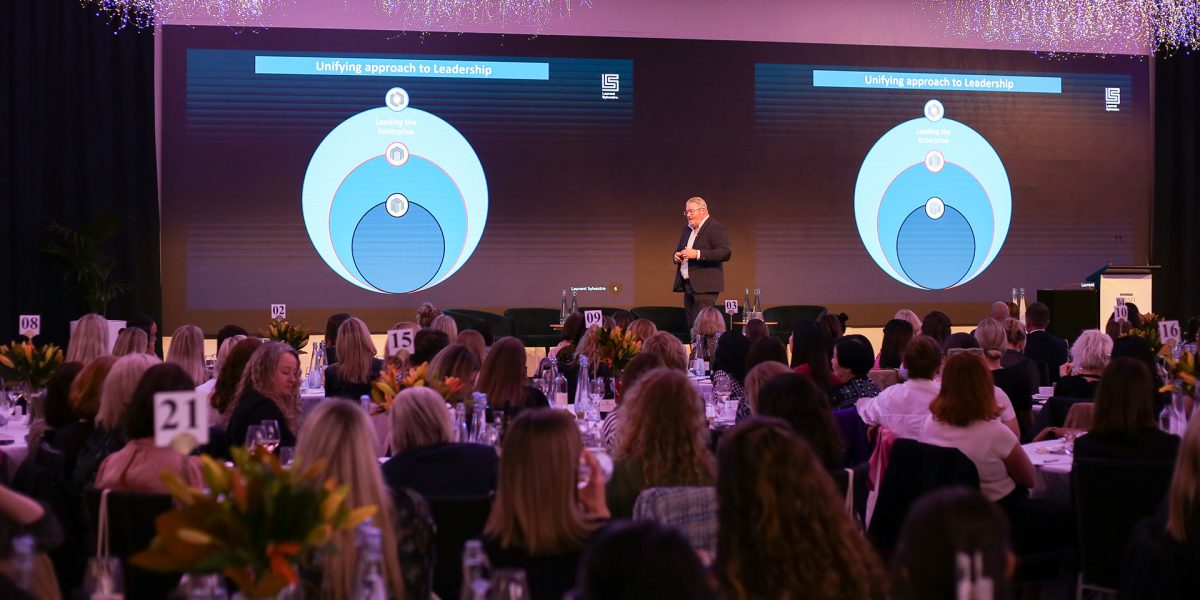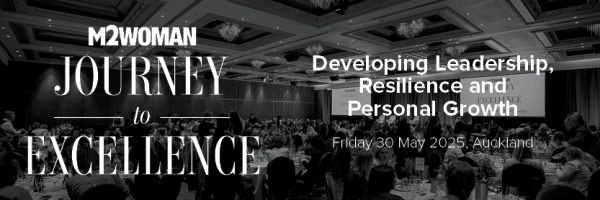M2woman Journey To Excellence May 2024 – Executive Summary
In today’s rapidly changing world, finding a moment of calm and clarity is invaluable. The recent M2woman Journey to Excellence event provided just that—an afternoon filled with thoughtful keynotes, engaging insights, and meaningful networking opportunities.
Our editorial director opened the event with a reflection on how far we’ve come since our first event in 2018. He noted the significant impact these events have had, from fostering critical conversations to influencing institutional approaches to metrics and ESG reporting. The Journey to Excellence has become an important platform for navigating the complexities of modern life.
This year’s program covered a wide range of topics, from financial stability and leadership to personal development and technological advancements. Their discussions offered valuable perspectives on building resilience and stability in uncertain times, providing attendees with practical advice and inspiration.
The following recaps the key moments from the day, highlighting the main points from each keynote and panel discussion. Whether you joined us in person or are catching up afterwards, we invite you to explore the insights and lessons that emerged from this year’s M2woman Journey to Excellence.
How to Lead A Multi-Generational Workforce
Laurent Sylvester
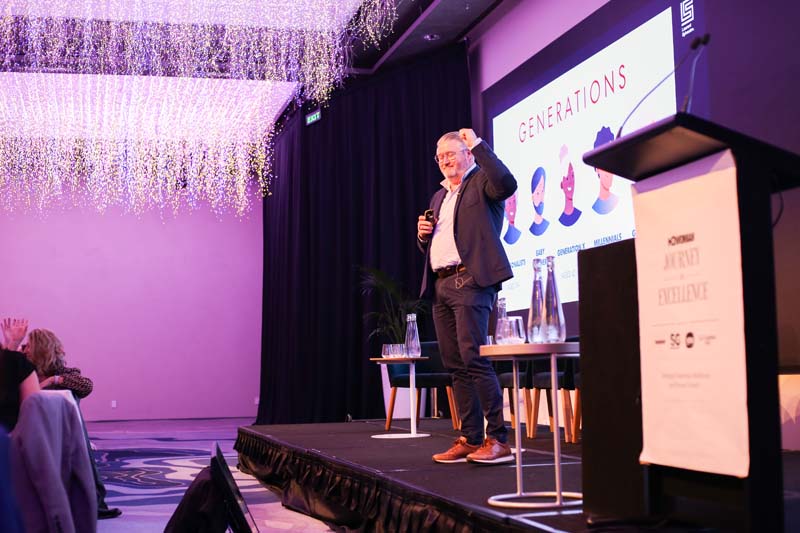
Laurent Sylvestre’s engaging mix of humour and heartfelt sincerity provided fresh insights into leading a multi-generational workforce, a topic that hits home in today’s diverse workplaces.
Laurent’s journey to founding The Human Perspective started on April 1, 2020. No, it wasn’t an April Fool’s joke—it was a mission with a serious purpose. “What I do is very simple,” he explained. “I help individuals, executive teams, and organisations become the best version of themselves.”
The core of Laurent’s talk was about the richness of having up to five generations in the workplace. From Traditionalists to Gen Z, each generation brings unique perspectives and strengths. But instead of focusing on what sets these generations apart, Laurent emphasised the importance of finding what unites them.
To illustrate this, he conducted a quick, interactive survey to gauge the generational mix in the room. “Who is a Gen Z? Very brave of you. Millennials? Generation X? Baby Boomers? And do we have any Traditionalists today?” This exercise set the stage for exploring shared values and goals that transcend age.
Laurent’s leadership model revolves around three intertwined aspects: leading the enterprise, leading others, and leading self. He delved into each aspect, highlighting the importance of balancing strategic knowledge, people management, and self-awareness. The first layer, “leading the enterprise,” involves traditional skills like strategy, market navigation, and execution. The second layer, “leading others,” focuses on motivating and engaging teams, fostering high performance, and building strong relationships.
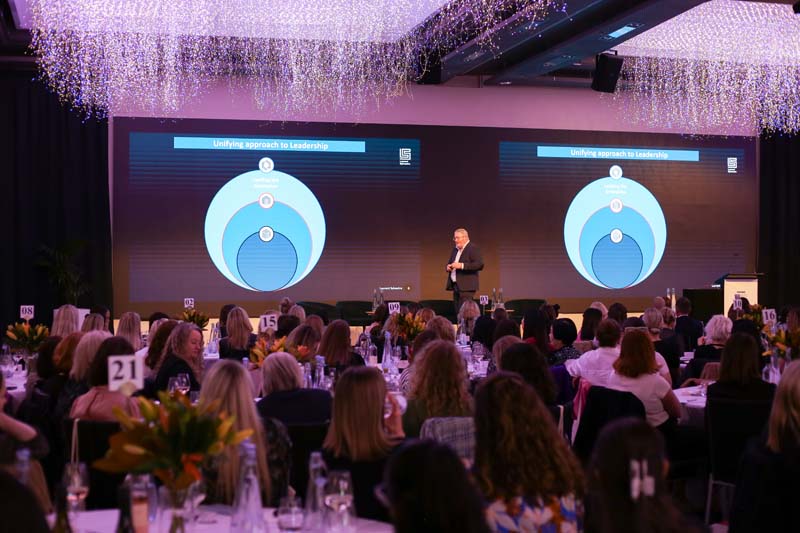
But the most profound part of his model is “leading self.” Laurent shared candidly about his personal struggles, from childhood depression to adjusting to life in New Zealand. “By the age of 11, I was 25 kgs heavier than an 11-year-old kid. I changed school and got bullied daily,” he recounted. These experiences underscored the importance of self-leadership in achieving authentic and impactful leadership.
Laurent’s emphasis on authenticity and vulnerability was particularly striking. He argued that true leadership comes from showing your authentic self and embracing vulnerability as a strength. “Being vulnerable is not weak; it’s strong,” he stated. “In a world that often values toughness and perfection, being vulnerable allows us to connect on a human level.”
He encouraged leaders to share more of themselves, even if it’s just small steps. “You’ll be surprised at how deeply you can connect with others and how it can transform your workplace,” he said. Laurent shared how his own vulnerability and authenticity had helped him connect with his teams and foster a more inclusive and supportive work environment.
A key takeaway from Laurent’s talk was the idea that every leader has a unique superpower. Instead of striving for perfection, he urged the audience to focus on discovering and leveraging their unique strengths. “We need to stop trying to be perfect and start trying to be purposeful,” he emphasised. This approach not only fosters personal fulfilment but also drives better organisational outcomes.
Laurent wrapped up his keynote with a powerful call to action. Quoting Maya Angelou, he encouraged the audience to have the courage to change things and to start with themselves. “If not us, then who? If not now, then when?”
How to Build Personal & Team Resilience
Hannah McQueen
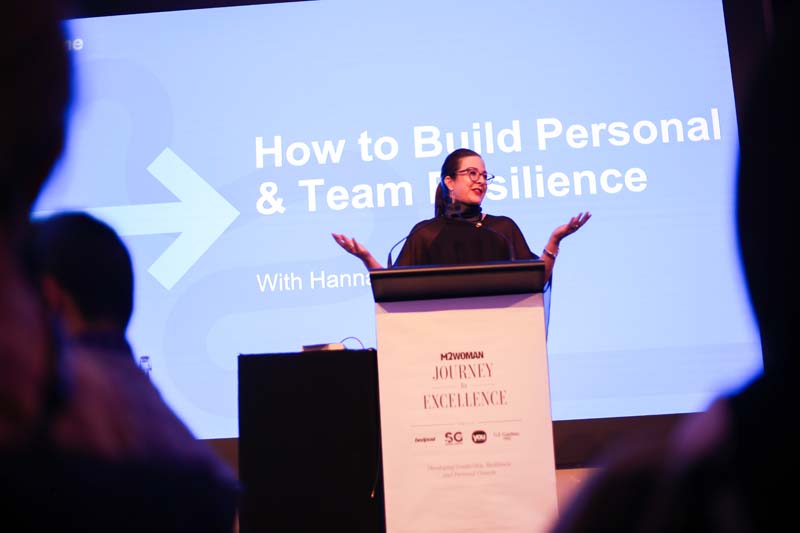
At the M2woman Journey to Excellence event, Hannah McQueen, the founder of Enable Me, took the stage to share her journey from financial frustration to helping thousands of Kiwis conquer their mortgages and build wealth. Her story is one of resilience, innovation, and a fair bit of Kiwi ingenuity.
It all started 18 years ago when Hannah, then a chartered accountant with a master’s in tax and financial advising, faced the daunting task of paying off a $350,000 mortgage. Like many of us, she felt stuck by the prospect of paying back over a million dollars to the bank. When her banker offered the standard advice—shorten the mortgage term or juggle floating interest rates—Hannah knew there had to be a better way.
Determined to crack the code, she turned to the Calculus Department at the University of Auckland. After six months of hard work and eight pages of calculations, Hannah developed a formula that would save her the full amount of her mortgage in interest costs. She patented this game-changing formula, which became the foundation of her company, Enable Me.
But it wasn’t all smooth sailing. Before her big breakthrough, Hannah pitched a debt-reduction idea to her boss, only to be fired for presenting what was seen as a competing business plan. This setback turned out to be a blessing in disguise, propelling her to start Enable Me and help others achieve financial freedom.
Enable Me focuses on more than just numbers—it addresses the behaviours that drive financial success. Hannah shared how her initial formula wasn’t enough because of her own spending habits. By changing these behaviours, Enable Me has helped over 15,000 clients.

Hannah’s keynote was filled with practical advice and personal stories. She talked about resilience, using metaphors like red lipstick, Mike Tyson, the mountain, and the mirror to illustrate how to face challenges head-on, seek advice from those who’ve been there, and stay self-aware.
One of the key principles she discussed was the Stockdale Paradox, named after Admiral James Stockdale, a prisoner of war during the Vietnam War. Stockdale survived eight years of torture and imprisonment by maintaining unwavering faith that he would prevail in the end, while also confronting the brutal facts of his current reality. Hannah emphasised that financial resilience requires a similar mindset: have faith in your financial goals, but be brutally honest about your current situation and the steps needed to improve it.
She also highlighted the importance of having a supportive team. Drawing from her experience training for the New York Marathon, Hannah explained how a running coach gave her the structure and accountability she needed to succeed—an analogy for achieving financial goals.
Her closing advice was especially empowering for women. Hannah urged the audience to balance kindness with cleverness and politeness with power. Her upcoming book, “Kill Your Mortgage and Sort Your Retirement,” promises to be a practical guide for anyone looking to take control of their finances.
My Career Path To Becoming A Professional Director
June McCabe
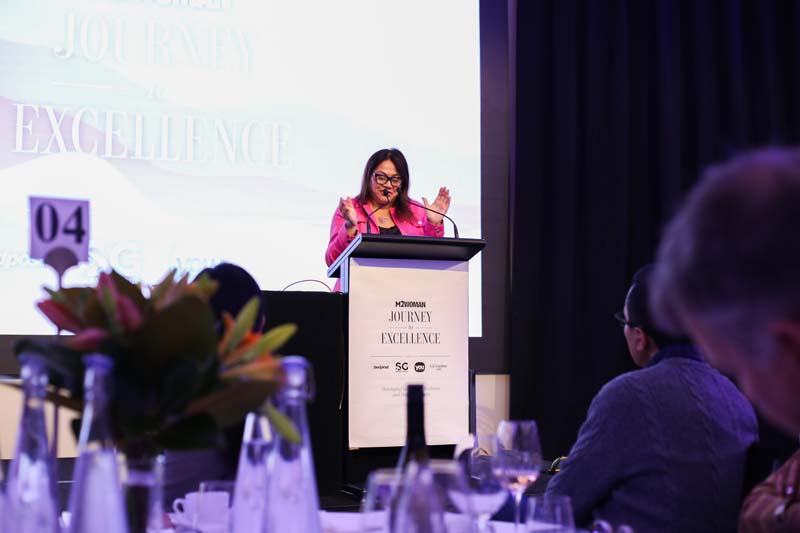
June McAbe’s keynote covered her extensive career journey, highlighting a pivotal moment in 1994 that set her on the path to governance. “It’s about taking risks and seizing opportunities,” she explained, underscoring the importance of being adaptable in an ever-changing world.
For those aspiring to governance roles, June recommended reading key texts like the IOD Four Pillar Handbook and “Fish Rots From The Head” by Bob Garrett. “Understanding organisational culture and risk is crucial,” she emphasised. Governance, she noted, is not just about overseeing operations but understanding the underlying culture and identifying potential risks. Her words resonated with many in the room, eager to learn from her extensive experience.
June’s story is deeply rooted in her upbringing in Kaitaia, where she was raised by her grandmother. Surrounded by strong women, she learned the values of education and independence early on. “My Māori heritage shaped who I am,” she shared, reflecting on a childhood devoid of racial barriers—a stark contrast to today’s societal challenges. Her grandmother, a woman of immense strength and determination, played a pivotal role in her upbringing. “She was widowed at 38 and raised eight children and three grandchildren, including me,” June recalled. This environment instilled in her a sense of resilience and self-reliance that would serve her well in her career.
Education was a key focus in June’s upbringing. Her grandmother was insistent on the importance of education as a means of escaping the confines of their small community and achieving personal growth. “Education, education, education—it was the mantra then and it still is today,” she said. This emphasis on learning paved the way for June’s future success and shaped her belief in the power of education as a transformative tool.
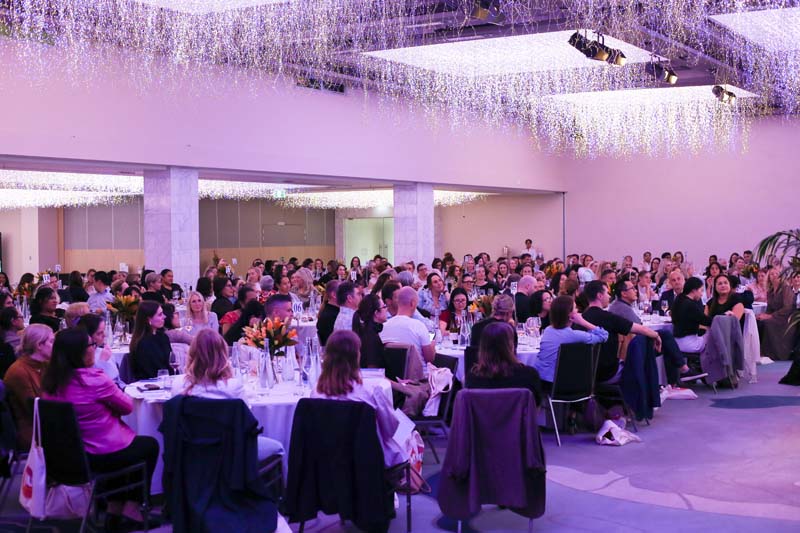
June’s grandmother, a pillar of strength and determination, instilled in her a sense of responsibility. “It’s about doing the right thing,” This principle has been a guiding force throughout her career, driving her to make meaningful contributions in every role she undertakes. Reflecting on her grandmother’s influence, she noted, “She was my mentor and my inspiration. Watching her navigate life’s challenges with grace and strength taught me the importance of perseverance and responsibility.”
Describing herself as a “deep generalist,” June explained the value of having a broad range of experiences rather than following a linear career path. “It’s about being adaptable and taking opportunities as they come,” she advised. Her career, marked by diverse roles and responsibilities, is a testament to this philosophy. Rather than climbing a hierarchical ladder, June’s career has been characterised by a series of lateral moves that have enriched her skill set and broadened her perspective. “I’ve always been an ‘and-and-and’ person,” she said, referring to her multifaceted career.
June’s journey through various board positions—public, private, and not-for-profit—has taught her the importance of timing and context in decision-making. “Governance is about understanding the bigger picture and making informed choices,” she noted, offering a glimpse into the strategic mindset required for such roles. Her experiences have underscored the significance of context and timing in governance, emphasising that the right decision at the wrong time can still lead to failure. “It’s all about context and timing,” she reiterated, “knowing when to act and when to hold back is crucial.”
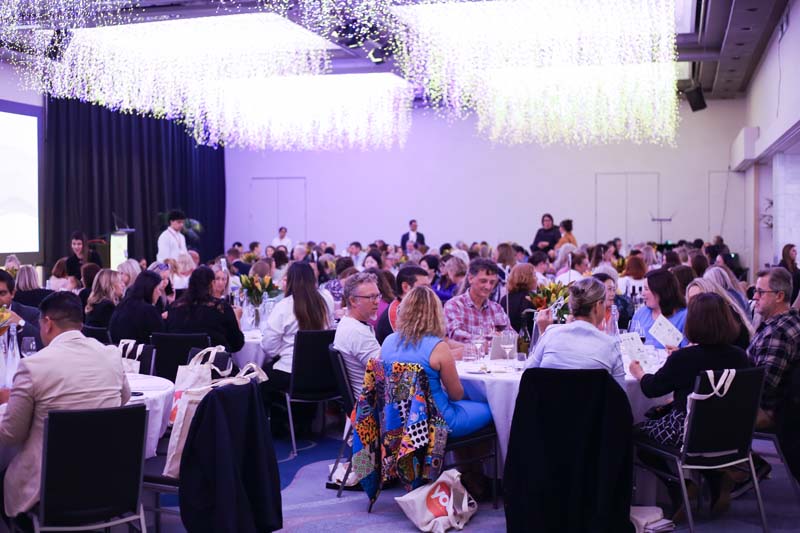
Self-awareness, relentless self-belief, and curiosity are traits June holds dear. “Do the work and stay in the sweet spot of confidence,” she urged. June also highlighted the importance of curiosity, noting that a genuine interest in understanding how things work and why people behave the way they do has driven her throughout her career. “Curiosity keeps you engaged and motivated.”
June’s sense of intergenerational responsibility is particularly strong, especially towards the Māori community. “I want to make the world a better place for future generations,” she said passionately. She spoke about the importance of intergenerational responsibility in her governance roles, emphasising that decisions made today should benefit future generations. “It’s about sustainability, food security, health and safety—all the things that ensure a better future,” she explained. This sense of duty extends to her work with Māori communities, where she strives to create opportunities and improve conditions for the next generation.
As she wrapped up her keynote, June reflected on her career, emphasising the importance of principles and the continuous quest for self-improvement. “Embrace opportunities and maintain self-awareness,” she encouraged, leaving the audience inspired and motivated. She shared that the journey of self-awareness and improvement is ongoing and that it’s important to stay true to oneself. “Who you are is the essence of your journey,” she said, “and it’s that authenticity that gets you in the room.”
Reskilling For An AI Future
Kristen Lunman
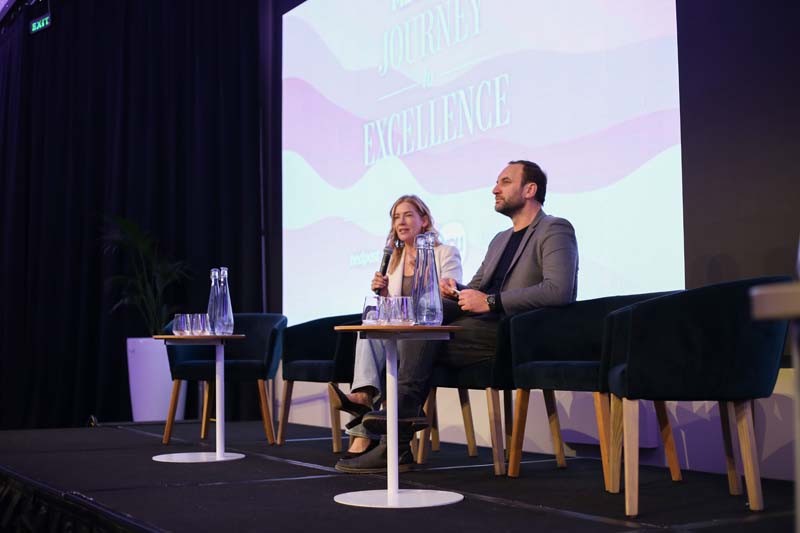
Kristen Lunman, who previously democratised access to global investments with Hatch, has now channelled her energy into PowrSuit—a global network for women and male allies and she shared some of this journey in her fireside chat. “We wake up every morning to give women the connections and the tools to define what leadership and career success is on their terms,” she shared.
Leaving Hatch, Kristen and her co-founder Natalie Ferguson realised a significant gender divide in investment habits. Men were not only investing more but also dominated their platform. This gender gap sparked a profound journey into understanding the emotional baggage associated with money, risk, and societal narratives. “We spent an inordinate amount of time trying to get more women to invest,” Kristen explained.
Initially, the idea was to create a fund exclusively for companies led by women with diverse boards. However, the stark reality was that there were only 156 such companies worldwide. This revelation highlighted a larger problem. “Not every woman wants that top job for a huge array of reasons. What we do want is to take the biggest asset of our lives—our careers—and succeed on our terms,” Kristen emphasised.
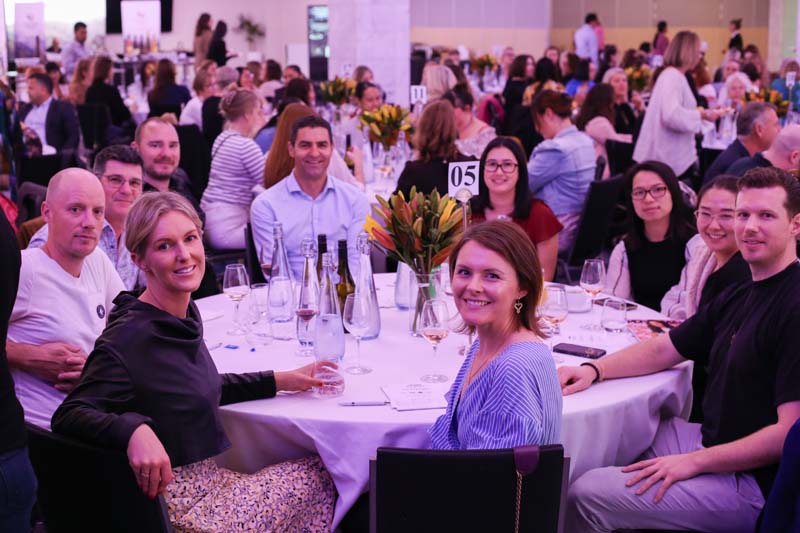
PowrSuit emerged from this understanding. It aims to provide women with the necessary tools and networks to achieve career success as they define it. Kristen and Natalie spent a year in research, uncovering that connections and practical behaviour change were critical to women’s success.
One of the key findings from their research was the importance of networking. Historically, networking opportunities were built around male-centric activities like golf courses or drinks after work, which didn’t always suit women. “Women have shallower networks because networking was never built on our terms,” Kristen noted. PowerSuit aims to change this by creating inclusive networking opportunities tailored to women’s needs.
The second critical tool identified was the concept of learning by doing. Practical behaviour change and skill development are at the core of PowerSuit’s mission. “Laurent spoke about it, of actually taking an action every single week. How can I learn a skill? How can I break it down to the smallest thing and effectively practice it week in and week out?” Kristen shared. This approach helps women develop critical leadership skills like communication and negotiation.
In discussing the evolving concept of leadership, Kristen highlighted the impact of COVID-19 on empathetic leadership. “Productivity went up, engagement with work went up, care for one another and trust in one another went up,” she observed. This shift towards empathy and adaptability is redefining leadership in today’s world.
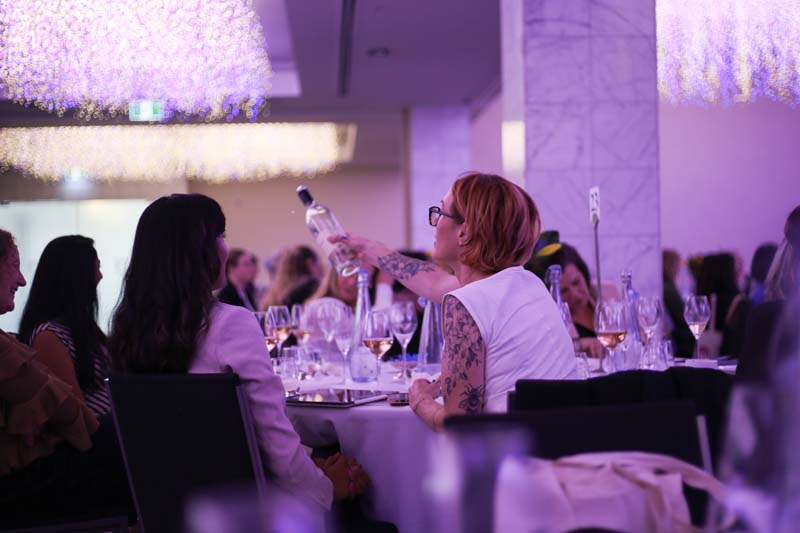
Kristen also touched on the role of AI in the workplace. While AI can handle repetitive tasks, it lacks the human qualities of care and adaptability. “AI has no ability to care. Ultimately, relationships are built on care. I care about you. I care that you’re around. I know that you’ve got my back,” Kristen said. This humanness and the ability to deal with ambiguity are qualities that will keep human leadership relevant.
Despite the challenges, Kristen remains optimistic. She believes in the power of diverse teams and perspectives to drive success. “Diverse teams and perspectives outperform on every single measure, be it brand reputation, customer success, engagement, employee retention,” she asserted.
Kristen’s vision for the future is one where her children will not have to deal with the same barriers she faced. “I’m optimistic that the world that I had a career in the first 20 years of my life is going to look very differently for my two children,” she said. She sees a future where individuality is embraced, and AI helps us eliminate the drudgery of repetitive tasks, allowing us to focus on more meaningful work.
Kristen’s parting advice to the audience was a powerful reminder of our shared experiences. “We are not alone. We’re all probably feeling and thinking and doing our best to get up every day and navigate this space. Just don’t do it alone. Be really open. Grab a friend, go out for coffee, talk about work,” she encouraged.
Panel Discussion
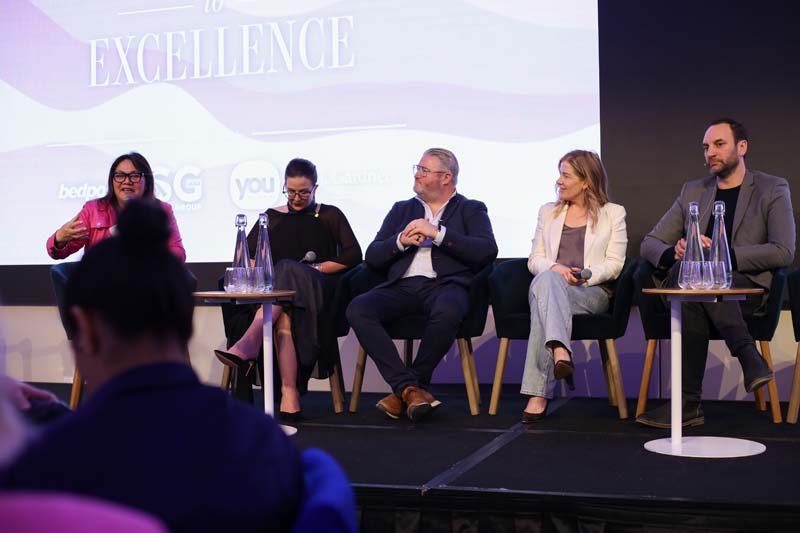
Kristen Lunman opened the discussion by emphasising the importance of focusing on strengths rather than weaknesses. “If we could get every single person in this room optimised using their strengths every day, we’d solve the world’s problems,” she remarked. Lunman highlighted the inefficacy of dwelling on weaknesses, noting, “The best you will ever get at your weaknesses is mediocre at best.”
Laurent Sylvestre shared his experience working with clients over the past four years and stressed the need for people to find ways to replenish their energy, especially after the psychological impact of COVID-19. Silvestre advocated for leaders to foster resilience by acknowledging their team’s strengths and creating an environment where they can thrive.
Hannah McQueen provided a personal perspective on self-belief and honesty. She shared advice from her mother, “Make sure you get a seat at the table and don’t be afraid to sit alone.” Hannah also emphasised the importance of being brutally honest with oneself and recognising areas where help is needed. “If I don’t think I can do something, I’ll put my hand up to myself,” she stated.
The discussion also touched on the significance of cultural identity and heritage. June McCabe, reflecting on her Māori background, underscored the importance of being proud of one’s roots and overcoming societal boxes that limit potential. “You can’t be useful to others unless you love yourself first,” McCabe said, stressing the value of self-acceptance in contributing to the community.
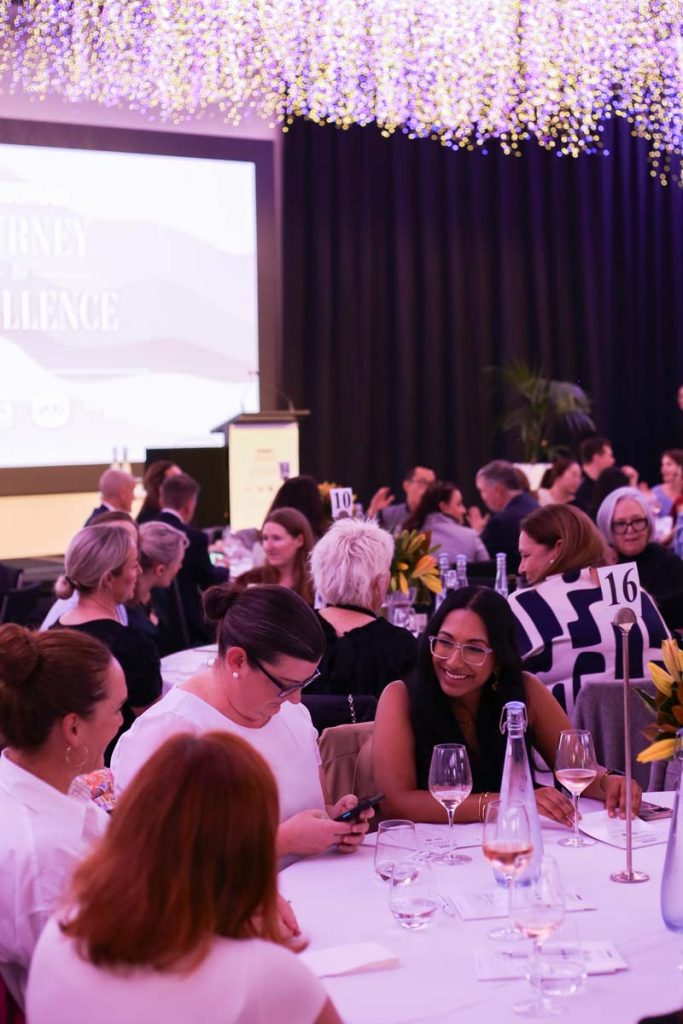
The panelists agreed that modern businesses must serve the community to be truly successful. Hannah suggested, “Any good business model serves the people.” She highlighted the feedback she receives from clients, emphasising the impact of her work on their lives. Sylvestre shared his journey of leaving the corporate world to start his own business, driven by a desire to help people and organisations be the best versions of themselves.
Kristen discussed the evolving relationship between businesses and communities, noting the increasing importance of sustainability and corporate social responsibility. She reflected on her experience in the startup space, where a strong mission and purpose drive commitment and resilience.
The panel concluded with practical advice for personal and professional growth. June encouraged attendees to learn from their mistakes and take risks.
Hannah urged the audience to recognise their strengths and work on being better, particularly in the face of harder conditions.
Kristen provided a practical networking tip, suggesting attendees ask three people to identify their strengths to gain insights into how they are valued by others.
Laurent challenged attendees to “connect deeper” with their teams and loved ones, emphasising the transformative power of meaningful connections.
